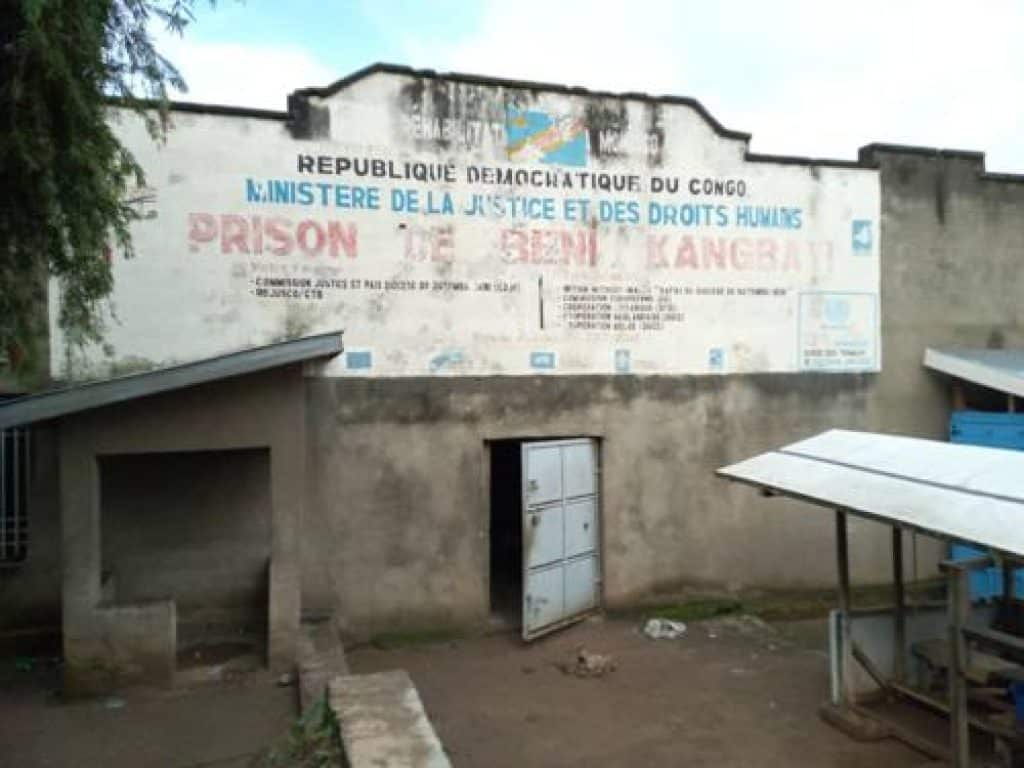
Earlier today, at least 1,300 inmates held in a prison in northeastern Democratic Republic of the Congo (DRC) were freed in an attack claimed by the Islamic State.
The raid was conducted by the Allied Democratic Forces (ADF), the Islamic State’s local affiliate within its ‘Central African Province.’
In its short statement released through its Amaq News Agency, the jihadist group said “fighters of the Islamic State this morning [Oct. 20] attacked the Kangbayi central prison and military base of the Congolese army in the town of Beni in northeastern Congo.”
The lack of additional details is common in statements released through Amaq. Additional details or visual evidence has not yet been provided by the Islamic State, as of the time of publishing.
However, the ADF has also claimed the attack through its private social media channel. In the statement, the group refers to itself as part of the Islamic State’s Central African Province. The communique and translation were provided to FDD’s Long War Journal by the Bridgeway Foundation.
In the short statement, the ADF said “your Muslim brothers and sisters from the Central African Province assaulted an army base and also liberated 1300 inmates.” The group also alleges the prison was used as a facility for torture by the Congolese government.
According to local reports, ADF militants launched two simultaneous attacks targeting the Kangbayi prison and adjacent military base.
Other reporting has indicated a third attack on a Congolese military position took place just outside of Beni immediately prior to the assaults on the prison and military base.
As a result, at least 1,300 inmates were freed. It is unclear, however, how many of these inmates are actually members of the ADF, local militias, or general criminals.
Local officials, including the mayor of Beni, Modeste Bakwanamaha, quickly placed blame on the ADF. According to Bakwanamaha, 20 inmates who had been freed in the raid later surrendered themselves and identified the attackers as the ADF.
Additional reporting by Reuters added that the Kangbayi prison was also holding several ADF members at the time of the raid. The group has also been accused of perpetrating a similar attack on the same prison in 2017.
Interestingly, yesterday’s prison assault comes just days after official Islamic State spokesman, Abu Hamza al-Quraishi, praised the group’s Aug. 2 prison break in Jalalabad, Afghanistan. In referring to that assault, al-Quraishi called on members and supporters to conduct similar operations around the world.
While it’s unclear if the ADF took direct orders from the Islamic State to mount today’s assault, it is, however, evident that there is an ongoing trend in which IS leaders have urged more jailbreaks in speeches and messages which have then correlated with attacks on the ground.
It is possible this has now occurred in the DRC. In a separate message on its channel, the ADF acknowledged al-Quraishi’s recent speech saying that “Abu Hamza al-Quraishi said the Khalifah [referring to current Islamic State emir Abu Ibrahim al-Hashimi al-Quraishi] advises all mujahidin to set their eyes on breaking the walls of prisons and free our brothers.”
The statement also added that “he [Abu Hamza al-Quraishi] said the conquest over lands comes after prisons are destroyed and brothers are set free to join hands in destroying the Tawaghit [tyrant] oppressors and their fortifications.”
The ADF and the Islamic State
Originally dedicated to overthrowing the Ugandan government, the ADF fled to eastern Congo in the mid 1990’s and began aligning itself with other groups operating in the area and forging relationships with local communities.
Over time, and notably after a shift in leadership around 2014-2015, the ADF further radicalized, dramatically escalating attacks on Congolese civilians. It soon became clear that this radicalization accompanied efforts by the group to align itself with the Islamic State.
In 2016, the ADF began releasing a series of videos in an apparent attempt to publicly declare its radical ideology. Many of the videos demonstrate clear jihadist messaging, including mantras of establishing a caliphate, calls for violence against “infidels,” and a declaration of their intention to impose a strict interpretation of Sharia in the DRC and Uganda.
The following year, the ADF received financing from Waleed Ahmed Zein, an East Africa-based terrorist who was later sanctioned by the US Treasury for his role within the Islamic State. Treasury noted that his network was able to move money to Islamic State fighters in “Syria, Libya, and Central Africa.”
Zein’s partner, Halima Adan Ali, was also sanctioned by the US Treasury for providing support to the Islamic State. In its press release, Treasury reiterated that Ali and Zein moved money for the Islamic State to fighters in Central Africa.
In February 2018, Congolese troops found Islamic State material and books during a raid on an ADF camp near Beni. One of these books was published by the Islamic State’s Maktabah al Himma, an important wing of the group that once produced theological and ideological treatises.
These links appear to have progressed such that, in April of 2019, the Islamic State claimed its first attack in the DRC under the “Central Africa Province” moniker. In its locally produced media, the group has also referred to itself as the Islamic State.
Since then, the group has claimed more than 71 operations in the Congo according to data kept by this author. The majority of these can be tied to verified ADF attacks based on reporting by the Kivu Security Tracker (a project that maps violence in eastern Congo) and by local media.







